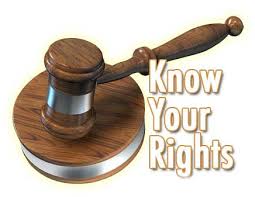After considering jurisdiction (which we can actually think about as early as when making a deal because one can agree to a more favorable jurisdiction in one’s contract), the next thing we need to consider is evidence.
According to PRC civil procedure law, evidence that can be accepted by the judge includes:
(1) statements of litigants;
(2) documentary evidence;
(3) physical evidence;
(4) audio-visual materials;
(5) electronic data;
(6) witness testimony;
(7) expert evaluations; and
(8) inquest records.
Litigants can make their statement via their pleadings or by oral argument during court hearings; litigants may apply for an expert evaluation or the judge may order an expert evaluation if the judge believes that it will help establish the facts of the case and uncover the truth of the matter.
However, besides the statements of litigants and the expert evaluations, other evidence may need to be submitted to the court. Litigants should be aware of the specific time limits relating to the submission of evidence as failing to adhere to these time limits could cause adverse consequences. If litigants cannot provide supportive evidence of their claim or cannot provide the evidence in a timeous manner then they may have to face an unfavourable result.
The following are other general rules regarding civil evidence:
1. Priority
Among all the evidence, notarized documents shall be taken as the basis for ascertaining facts by the court, unless there is evidence to the contrary sufficient to invalidate the notarization.
Generally, a pure statement of the litigants without other evidence is hard to be accepted by the judge. But, if the statement is against the very same person who made the statement, it will be used. So, litigants should be careful not to say things that will negatively affect their case.
Though witness testimony is listed as evidence, it is not easily accepted by the judge. Ideally, two or more witnesses had better testify to corroborative each other’s testimony. In other words, the testimony is more likely to be accepted by the judge if two or more witnesses make the same or similar statements. The problem with witness testimony as evidence is that the opposing party can simply say “the reason they said so and so, is because they are friends or is because the witness hates me.” This is why other forms of evidence are so important in proving the facts of the case.
2. Electronic data
In recent years, more and more people communicate or even make deals via e-communication,electronic data is also accepted. In a collateral explanation given by Supreme People’s Court, Supreme People’s Procurator, Ministry of Public Security stipulates that e-evidence shall include the following:
- published information in web pages, blogs, micro-blogs, friends circle, paste bar, Internet disk and other network platforms;
- mobile phone text messages, e-mails, instant messaging, communication groups and other communication information in network applications;
- user registration information, authentication information, electronic transactions, communication records, login logs etc.;
- documents, pictures, audio and video, digital certificates, computer programs and other electronic files.
Although this explanation is given particularly about criminal evidence, the principal rules herein have been extensively applied to other procedures.

3. Original or copy
When the plaintiff files a lawsuit, he can only submit copies of the evidence. However, all originals should be shown in court room during the court hearing. A cross-examination will be conducted before court debate. A litigant can refuse to conduct cross-examination on the evidence, if the other party failed to provide the original. However, if the judge believes that the other party is withholding the original because the evidence is against him, the judge can, at his discretion, accept the copy.
4. Application for investigation
Usually it’s the litigants’ duty to provide evidence. However, under some objective circumstances, if it’s impossible for the litigant to do so, the litigant can apply for an investigation by the court.
Evidence must be verified to be true before it can be used as the basis for ascertainment of facts.
Useful link:
The Supreme People’s Court of The People’s Republic of China

